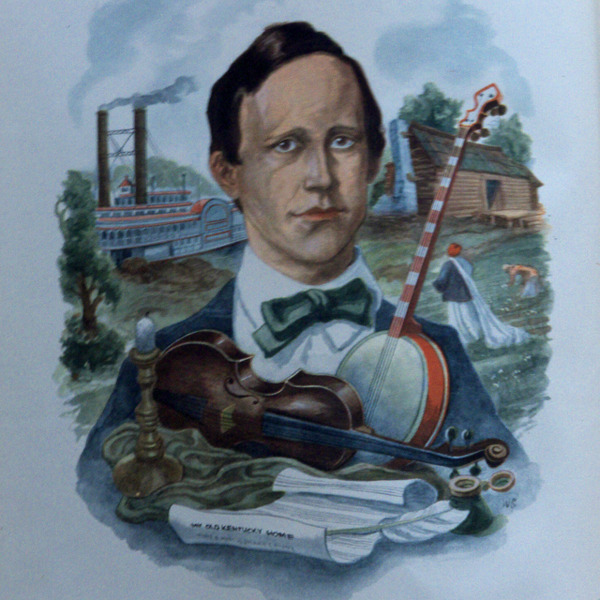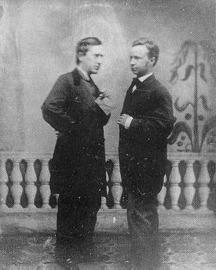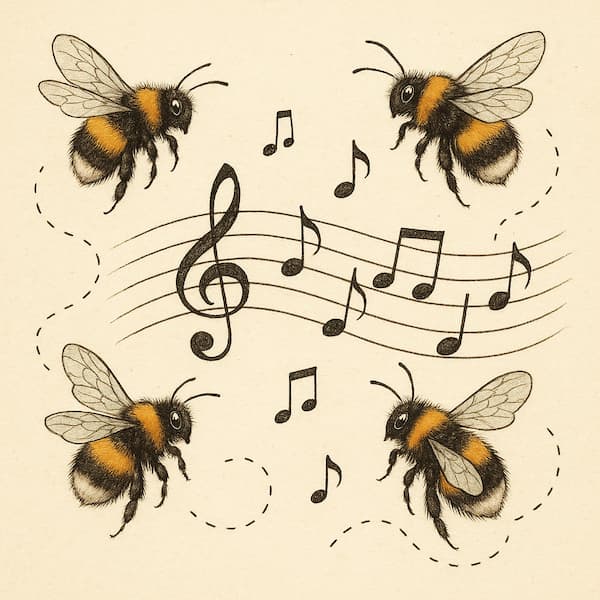
Stephen Foster
Credit: http://cartoslibrary.files.wordpress.com/
Stephen Foster: Gentle Annie
During his final years in New York City, Stephen Foster met the law student and poet George Cooper. They soon formed a professional alliance, and Foster called Cooper “the left wing of the song factory.” In all, they collaborated on 21 songs and it was Cooper who found Foster on the floor of a cheap hotel in January 1864. In a drunken stupor, Foster had fallen from his bed and cut his neck and head on a broken washbowl, ultimately leading to his death. After Foster’s death, Cooper went on to write lyrics for a number of influential composers throughout the 1870’s and 80s.
Stephen Foster: Mr. and Mrs. Brown
During the final year of his life, Foster wrote more than twenty hymns and a number of Sunday school songs intended for children. While some are set to words of other poets, most are settings of his words offering moral instruction to young souls. Horace Waters, who also ran a piano company in New York for many years, published these compositions, yet they remain relatively unknown and mostly unrecorded. Stephen Foster stands as the first great American composer of popular songs. It is often difficult to classify his style, as it contains folk, popular, and classical elements. Maybe that’s the reason his music easily transfers from one stage to another.

George Cooper with Stephen Foster
Credit: http://www.stephen-foster-songs.de/
Keith Emerson wrote, “I think that Stephen Foster really did create popular music as we still recognize it today, and he did it because he took together all these strands of the American experience. He merged them in a way that appeals to the multicultural mongrel experience of America in its history and culture.” Whether you singing the official state songs of Pennsylvania and Florida or look towards more contemporary incarnations, Foster’s music — hate it or love it — continues to deeply influence and resonate with American culture today.
Squirrel Nut Zippers: Ghost of Stephen Foster

